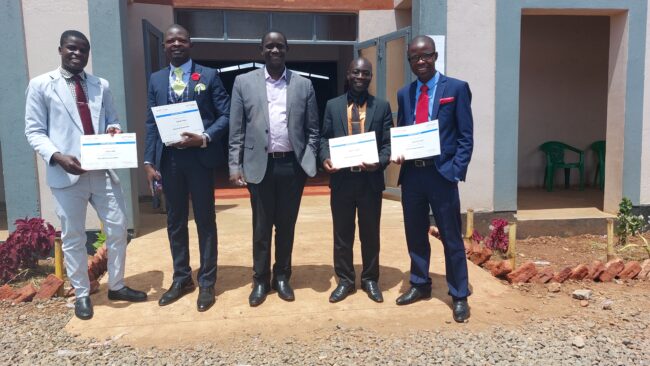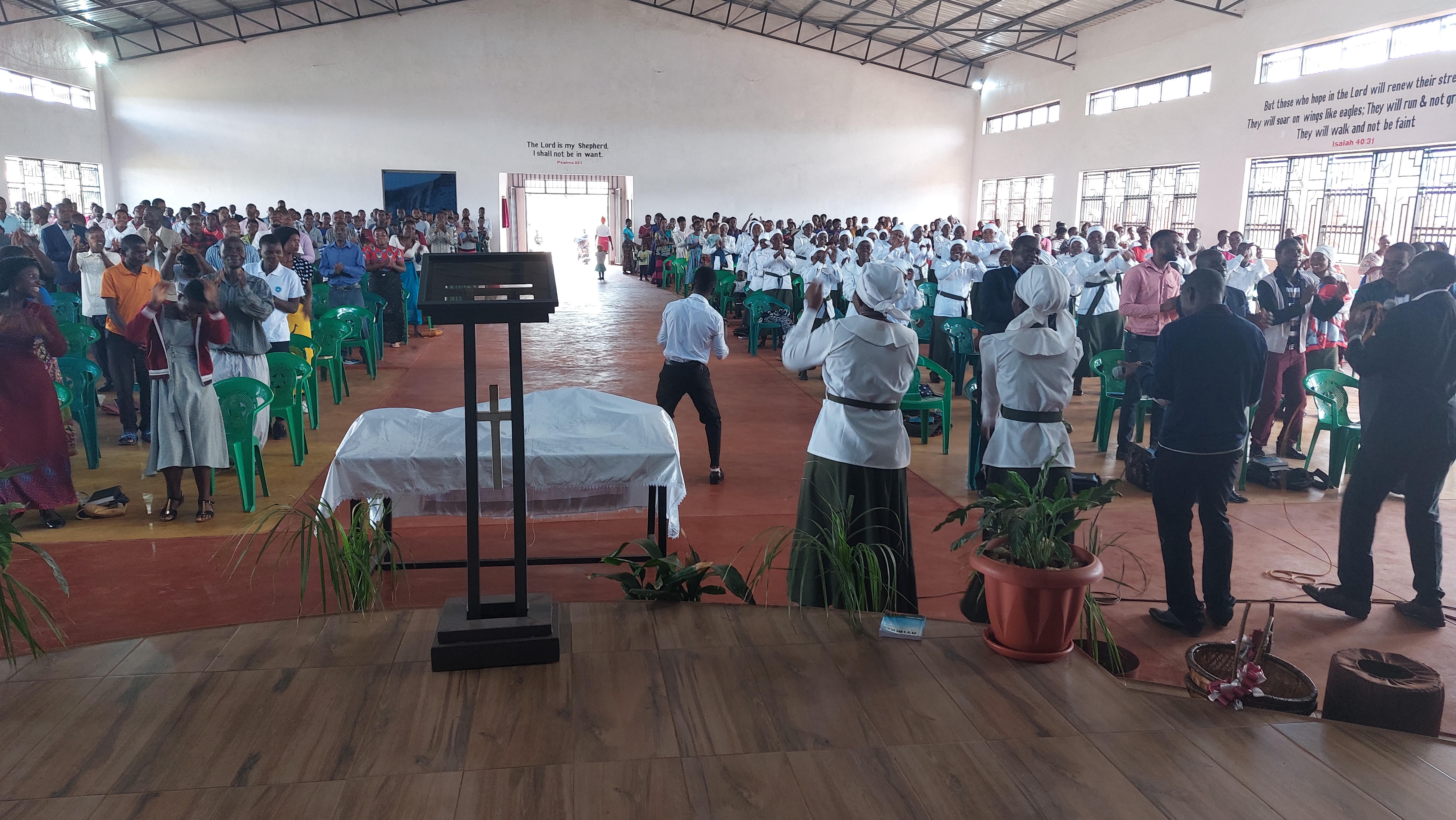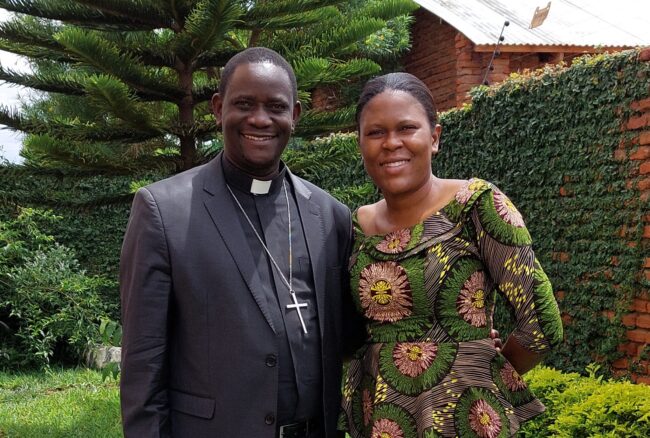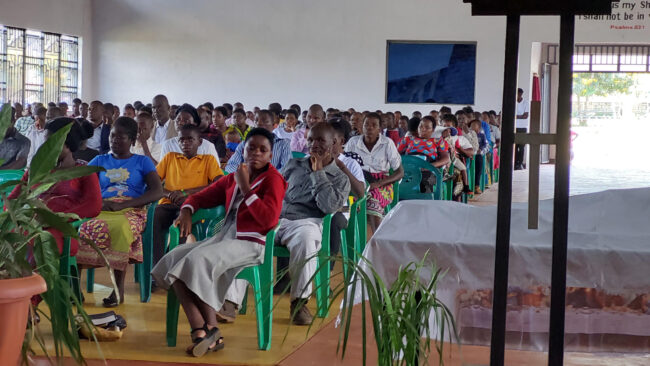“Can anything good come out of Nazareth?”
This question from John’s Gospel comes to mind when I ponder Pastor Robert Manda’s story. But replace Nazareth with Lilongwe, the capital city of Malawi. As Robert describes it, “Drugs and prostitution are rampant. Most people who come to our church live in slums and survive doing small jobs and substance farming.” Tobacco is Malawi’s top export.
But Robert sees beyond the brokenness of his home country. Instead, he sees a people in need of the gospel—sheep in need of a shepherd.
Just as Philip responded to Nathaniel’s question above (John 1:46), we invite you to “Come and see” the good coming out of Lilongwe.
Responding to God’s Love
Robert realized his need for salvation as a teenager. As one of eight children, he believed he was a good person simply because his mother would call him a “good child.” But a sermon by a former Muslim who now preaches the true gospel challenged this thinking by teaching, “No one will be saved by good works, but by trusting and responding to the love of God through Jesus Christ.” It was then that Robert was convicted of his self-righteousness and gave his life to Christ.
Today, Robert is the lead pastor of New Life Church and serves Acts 29 as the East Africa Strategist. He’s grown a passion for training rural church planters and planting healthy churches in remote and underprivileged places.
Bringing the Truth
New Life Church was planted in 2006 and replanted in 2018. It currently has over 400 members and is surrounded by communities that believe in traditional cults. Robert says, “It’s our hope and prayer that God will use us as salt and light to our communities and bring many to the saving knowledge of Christ.” One way New Life has done this is by establishing Christian schools as a tool to reach the lost.
When asked what are the primary obstacles to the gospel in his area, he says, “False Christianity. Most people think they’re Christians just because they belong to a certain denomination but haven’t heard the true gospel. False prophets are another obstacle. They mislead many with false prophecies. Lastly, lack of resources for the church is an obstacle for us to take the gospel to many.” But those obstacles are no match for God’s power and grace.
Overcoming Obstacles with the Gospel
Through the years, New Life Church has seen the gospel freeing people from the bondage of traditional cults. They’ve witnessed these people start confessing Christ as Lord and Savior and reorienting their definition of marriage. Many people now embrace the biblical definition of marriage as a covenant/union between one man and one woman. No more polygamy. “Many people now embrace the biblical definition of marriage as a covenant/union between one man and one woman. No more polygamy.” Condividi il Tweet
Robert has also seen more men taking the responsibility of caring for their families. He shared, “One of our elders used to be a drunkard and polygamist. However, when he started coming to our church, God redeemed him while listening to a sermon. Today, he is a free man and a good witness to many in the community.”
Answering Critical Needs
When asked about Acts 29’s impact on his ministry, Robert says, “I’m always grateful to God for the Acts 29 family. Attending conferences, learning from other pastors, and having access to good theological books is something that has helped me to grow spiritually as well as to keep making disciples of Christ.” He explained how his involvement with Church in Hard Places (CiHP) has opened many doors for him to reach out and train more pastors and church planters, particularly in East Africa.
In 2015, Robert noticed a “critical need for robust theological training among pastors and in particular, rural planters.” So he and his team started the Pastoral Training Institute of Africa (PTIA) which targets church planters who would otherwise have no access to quality theological education at an affordable cost. The vision of PTIA is that at least 80–90% of the training and discipleship come from other African church leaders. PTIA has graduated two cohorts and works with Acts 29 on assessing pastors and churches for inclusion in the network.
 As Robert continues in the labor God’s given him, he asks for prayer in the following areas:
As Robert continues in the labor God’s given him, he asks for prayer in the following areas:
- Pray for God’s wisdom for our church leadership to be broken by the things that break the heart of God.
- Pray for us to be protected against spiritual forces from traditional cults.
- Pray for resources in our institutions. In particular, we’re looking for funds to build a library for our students and church planters. We’re also looking for partners who may help sponsor planters in our residence program.
- Pray for Africa to be filled with gospel preachers. Our struggles and challenges in East Africa are not different from the ones I’ve mentioned for churches in Malawi.
- Pray that God should raise more global gospel partners to partner with African churches in theological training.
As we seek to plant healthy, multiplying churches, may we, like Robert, see beyond the brokenness of our neighborhoods and have a vision for the greater things God has in store for us. Condividi il TweetBack to the conversation in John 1, Jesus reveals that he saw Nathaniel under the fig tree. This causes Nathaniel to believe he really is the Son of God, and Jesus replies, “Do you believe? You will see greater things than these” (John 1:50). As we seek to plant healthy, multiplying churches, may we, like Robert, see beyond the brokenness of our neighborhoods and have a vision for the greater things God has in store for us.











